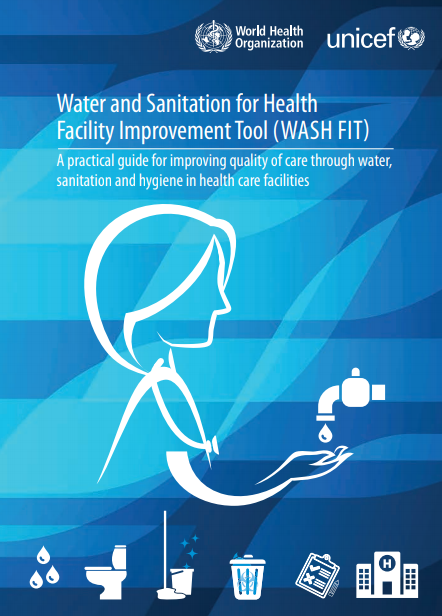3. June 2021
Contributors: Tigist Gebremedhin, Zekarias Fekade, Lucie Leclert
Photo Credits: Ali Said From – Ethiopian Rural Self Help Association (ERSHA)
HEKS is implementing two projects in the framework of the Swiss Water and Sanitation Consortium (SWSC) in different regions of Ethiopia. In the Amhara region (North Showa Zone), they work with their local partner ERSHA in two kebeles (lowest administrative units). Together, they build a multi-village rural piped water supply scheme and promote proper sanitation and hygiene facilities and services. These activities reach 25’000 persons in the rural community and includes three schools and two Health Care Facilities (HCF).
In order to assess the situation, the project teams used the SWSC baseline data collection and analysis tools, which are aligned with the JMP core indicators for WASH in institutions. In this way, the project teams got an overview of the baseline situation beyond the usual WASH aspects, and collected information about environmental sanitation, including waste management.
In terms of access to safe drinking water, the two HCF use rainwater from rainwater storage structures as their main source of water. During the baseline survey, medical personnel reported seasonal and daily shortages of water due to leakages, limited storage capacity and lack of a dedicated budget for operation and maintenance. Regarding sanitation, both HCF have pit latrines with concrete slabs; However, there are no hand washing facilities near the toilets. For waste management, one HCF has a basic level of service as defined by JMP: a system to separate the different waste fractions into three labelled bins and an incinerator for infectious waste, while the other uses only a protected pit to openly burn the waste.
Being part of the SWSC community of practice on WASH in HCF, HEKS has proactively consulted with SWSC colleagues in other countries to initiate the Water and Sanitation for Health Facility Improvement Tool (WASH FIT; WHO, UNICEF, 2018). The project team has taken promising steps to start the WASH FIT process of participatory risk assessment and continuous quality improvement of WASH services.
Photo: WASH FIT team members making an assessment of the WASH situation in Tsegereda Health Center
In March 2021, to get the buy-in and political commitment from the local government, HEKS teams organised a series of meetings with relevant local government offices to discuss the results of the baseline survey, present the WASH FIT approach, and highlight how a collaborative process can help improve WASH services including preparedness and response to pandemics such as COVID-19. As a result, the local health office led the process of revision and adaptation of WASH FIT indicators in line with the national and regional health policies.
The next step was to review of the local health plan, including the specific plans concerning the two target HCF. This was the starting point to establish the WASH FIT team. Building on existing kebele (village) level health related committees, the WASH FIT team in each HCF includes 9 to 10 members: the kebele administrator, the head and three technical experts of the HCF, a cleaner from the HCF, a community representative, a member of the water management committees (WASHCO) from the nearby water point, the health extension worker and a woman who recently gave birth at the HCF (as per the WASH FIT guidelines). Since women are the key responsible for the health of their household as well as for maternity and childcare, the gender balance of the WASH FIT team has to be given special consideration. Ensuring the participation of a woman who recently experienced the maternal services from the HCF is a way to safeguard that women’s needs are considered and that women get a voice in decision making.
On April 16th, HEKS and ERSHA, together with the local health office representatives, guided the WASH FIT team in each HCF through the WASH FIT assessment steps, using the locally adapted WASH FIT indicators and the WHO recommended sanitation inspection form. Based on this, the WASH FIT teams identified the main hazards and gaps. They are currently summarizing the findings and are preparing a health improvement plan.
The commitment and motivation of the local health office has opened a window of opportunity to advocate for budget allocation for the anticipated healthcare improvement plans at the local administration.

